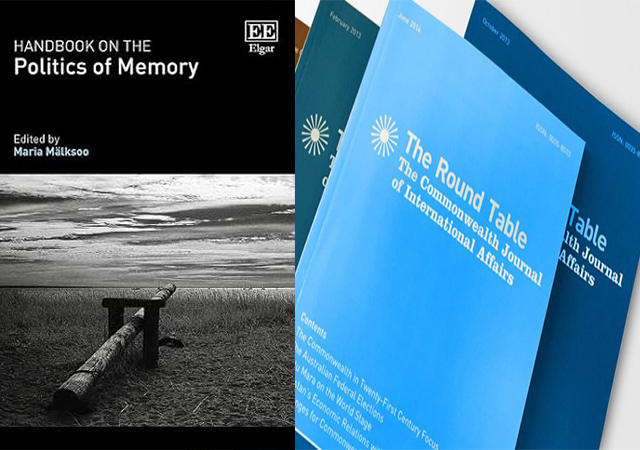
[This article is from The Round Table: The Commonwealth Journal of International Affairs.]
Pleasant memories as well as tragic memories tend to linger on, the former creating happiness and the latter pain and mental anguish. The editor, an associate professor at the Centre for Military Studies in the Department of Political Science at the University of Copenhagen, Denmark, has done a remarkable job in putting together a handbook with 27 chapters, each written by an author who is a specialist in different dimensions of the subject-matter of the publication. The handbook is divided into four sections: concepts and controversies; actors and practices; tools and sites; and contemporary cases.
The Handbook is enriched by case studies from virtually all parts of the world, namely Europe, the United States of America, Africa, East and Southeast Asia, and South America. With every tragic incident questions still tend to loom large as to what exactly happened and what the motives were. There are political, international relations and diplomacy, legal, ethical, historical, religious and cultural issues underlying attempts to reconstruct historical events, and determining accountability, commemoration and memorialisation. Books, films, television and evidence of actors and witnesses provide many perspectives explaining the sequence of events and possible theories. What the Handbook does is to provide a logical framework to better understand and explain political dynamics of crises in the proper context.
More Round Table contributions by Dayanath Jayasuriya
Sri Lanka, one-time Asia’s role model becomes a bankrupt nation
India Turns East: International Engagement and US–China Rivalry
Missing Persons in Sri Lanka: New Legislation
Many authors have selected crises that are now mainly of historical interest but a few have chosen recent and current developments. For instance, referring to the statue of Zheng He at the Mombasa railway terminal constructed by a Chinese firm, John Njenga Karugia looks at the transregional heritage politics and memory ethics across China’s One Belt and One Road initiative in the context of what is termed ‘infrastructure of memory’. Some chapters refer to lesser known interventions that deserve more attention. For instance, Johanna Mannergren Selimovic in the chapter on ‘The politics of reconciliation and memory’ refers to ‘Women’s Court’ in Sarajevo in Bosnia ‘as a successful example of breaking the particular potent silence around conflict-related sexual violence and disturbing the continuation of these crimes through misogynist discourses and practices into the post-conflict era’ (p.199).
Reading through the analyses of atrocities one cannot help feeling despair over the impotency of the United Nations Security Council and United Nations Human Rights Council: despite calls for cease-fires and transitional justice, for instance, some nations continue to act in blissful oblivion. Perhaps chapters on international law and instruments and the stalemate in Sri Lanka would have further enriched this valuable collection of essays. As this review was being completed, the media in Sri Lanka reported on 26 November 2023 that North-East courts in Sri Lanka have rejected police requests to ban events by Tamils to commemorate their war dead heroes and those who were killed during the war period. When the applications filed by Kilinochchi Division police station came before the magistrates court, the court refused to grant an order under vague urgent public nuisance clauses while recognising the right of the people to remember their lost loved ones. The Police had complained that these events were being organised to commemorate the terrorists, who belonged to the Liberation Tigers of Tamil Eelam (LTTE), a terrorist organisation banned in the country, and if allowed it would cause enmity among communities and disrupt normalcy in the region (Sunday Times, 26 November 2023). Though much is being said about reconciliation, there is an urgent need to ‘walk the talk’.
This Handbook is a path-breaking exercise in unravelling the dynamics of memory in conflict situations that are leaving behind a trail of agony and anguish in many parts of this troubled world.
Dayanath Jayasuriya, President’s Counsel, Sri Lanka.
Handbook on the politics of memory, edited by Mario Malksoo, Cheltenham, Edward Elgar Publishing, 2023.



